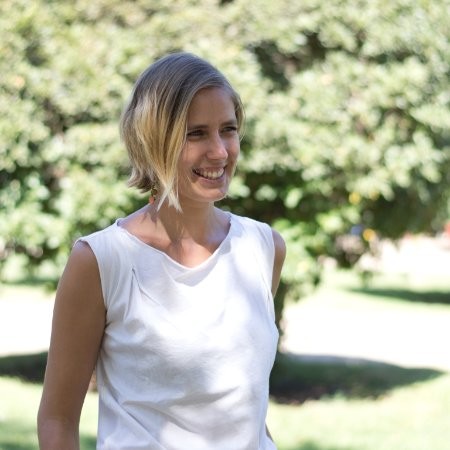Interested in the microbiome? So are we! Here’s a sneak-peek into S-Biomedic, one of the first microbiome start-ups in Belgium. We asked CEO Veronika Oudova to tell us about the challenge of being a new company developing an innovative product in a field where the regulations haven’t quite caught up with reality.
By Amy LeBlanc
A worldly company
As is the case for many European companies, S-Biomedic is an incredibly international organization. The company was founded in Barcelona in 2014 by German scientist Bernhard Pätzold, Czech manager Veronika Oudova and Spanish scientist Marc Güell. After a stint at a business accelerator in Chile, the company headed to Magdeburg University in Germany to generate their proof-of-concept data. It was during this time that S-Biomedic first came to the attention of Johnson & Johnson Innovation who, in 2016, invited the team to settle in Belgium as the first resident company of the JLINX incubator (now JLABS) in Beerse. Oudova explains what attracted her to the project:
“What motivated me to co-found S-Biomedic was the people: Bernhard and Marc have this clear vision and are very enthusiastic about what they do; they are really good at motivating the people around them, to get them excited about their ideas.
At the time, in Barcelona, I was looking for some new challenges and opportunities. Seeing the potential of S-Biomedic and what it could be, that we could create new treatments and really help people with unmet needs, it sounded really exciting!”
We started with acne because it is one of the most well-studied skin diseases, with a very clear link between the disease and the microbiome. – Veronika Oudova, S-Biomedic
After this whirlwind world tour, the S-Biomedic team knuckled down to start work on product development. Their lead product, a microbiome-based acne treatment, grabbed the attention of several prominent investors. In addition to Johnson & Johnson Innovation, Swiss Investiere VC and German Beiersdorf AG have, together with pre-existing investors, contributed to a Series A financing round worth more than 3 million euros. S-Biomedic is now working towards the commercialization of their acne treatment for a product launch by 2021. Regarding their base in Belgium, Oudova is very content with the location:
“I think that Belgium is an extremely interesting country for microbiome research. It has very strong universities in the microbiome field, like UGent and KU Leuven, as well as start-up driven institutes like VIB. We feel that Belgium is one of the centers for the microbiome ecosystem in Europe.”
Pro-skin prototypes
S-Biomedic’s lead product is a solution for every teenager’s worst nightmare: acne vulgaris. Based on different bacterial strains, the microbial cream combats zits by restoring a natural balance to the bacterial ecosystem living on your skin. It is a method that has garnered a lot of attention recently, with many major skincare companies looking into their own various solutions. Oudova explains the choices S-Biomedic has made:
“We started with acne because it is one of the most well-studied skin diseases, with a very clear link between the disease and the microbiome. We decided to use a consortium (of bacterial types) when developing our formula, as people naturally have about 5-7 strains on their skin. We wanted to mimic the natural flora of healthy skin.”
Ahead of the game, S-Biomedic are confident that their research will lead to not only acne treatments, but also solutions for other common skin issues such as rosacea, dandruff and even aging. They have already started development on their next product prototype and are happy to report that they have multiple candidates in the pipeline.
I think the whole industry should work together on educating the regulatory bodies about new microbiome techniques. – Veronika Oudova, S-Biomedic
The reality of European regulations
An early player in a nascent field, S-Biomedic try to keep up-to-date with developing microbiome regulations. “Everyone in this field is an explorer,” says Oudova. Microbiome companies are all facing a similar challenge at the moment: the products they are creating are so cutting-edge that no set legislature really exists for them yet. Oudova nonetheless maintains a rather positive outlook on the situation:
“In terms of regulations, we think European microbiome companies actually have a little bit of an advantage compared to our US competitors. There are pros and cons in both regions though.”
We feel that Belgium is one of the centers for the microbiome ecosystem in Europe. – Veronika Oudova, S-Biomedic
When asked how she feels about future regulations, Oudova was very empathetic in her answer:
“I think the whole industry should work together on educating the regulatory bodies about new microbiome techniques. A thorough understanding of these new methods will help to convince the regulatory bodies that what we’re doing is safe and correct. There should be rules in place, yes, but they have to be adjusted to the innovative technologies that have been developed in the last few years.”
JLABS @ BE will continue to benefit from 2.1 million euros of financial support granted by the European Regional Development Fund (ERDF) and the government agency Flanders Innovation & Entrepreneurship (VLAIO –Hermesfonds) until February 2019.


